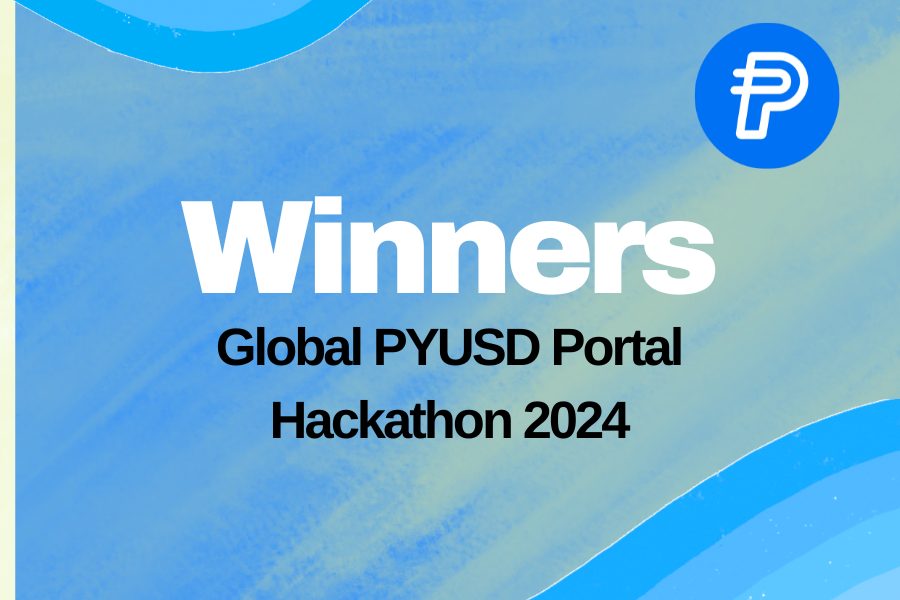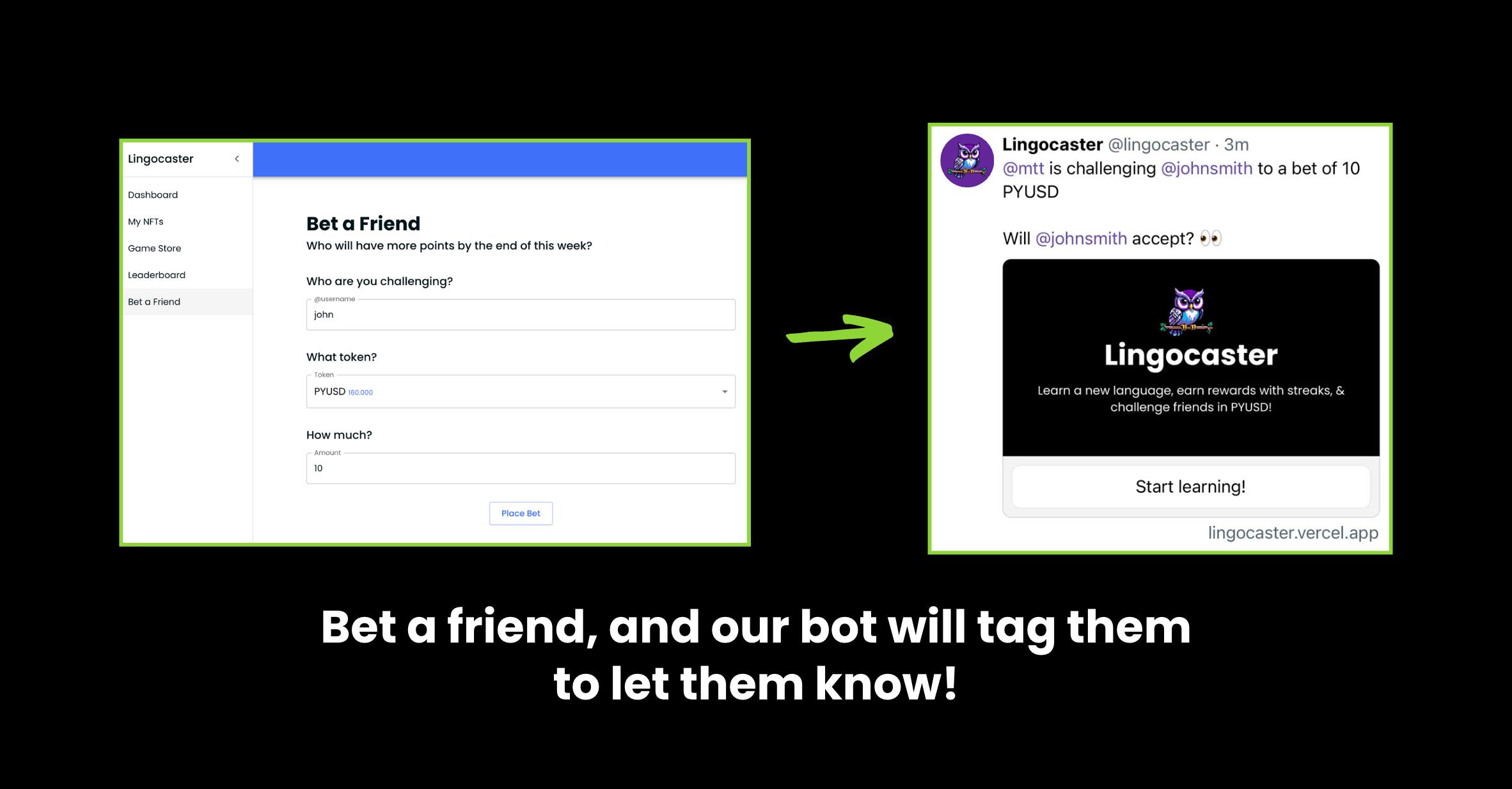Breaking New Ground: Winning Solutions from the PYUSD Portal Hackathon on Solana
Dec 11, 2024
5 min read

The first-ever Global PYUSD Portal Hackathon brought together over 250 developers from around the world to explore innovations using PayPalUSD (PYUSD) in the Solana ecosystem.
Built by Portal and powered by Solana, this hackathon not only allowed builders to demonstrate their prowess among some of the world’s best developers but also provided a collaborative environment where participants could experiment, share insights, and receive guidance as a community.
The hackathon featured a 40,000+PYUSD prize pool, showcasing the best developer ingenuity. Projects addressed challenges such as payments, commerce, DeFi and trading, gaming, and cross-border transactions.
Keep reading to explore the top two winning solutions—Ripe’s Universal QR Scanner SDK and the Lingocaster language-learning app—and see how they are pushing the boundaries for decentralized payments and innovation with PYUSD.
Why Developers are building with PYUSD on Solana
First, let’s look at the hackathon's focus, PayPal USD (PYUSD).
PYUSD is an open, fully backed, US dollar-denominated stablecoin designed for payments. Deployed on Solana, PYUSD offers developers a fast and cost-effective solution for building decentralized payment applications. Solana’s high transaction speeds and minimal fees make its ecosystem ideal for integrating PYUSD into Web3 and PayPal/Venmo wallets, allowing seamless transfers across different systems.
Developers were challenged to create viable projects that took advantage of the power of PYUSD, addressed real-world challenges, and built towards the future of decentralized digital payments.
Meet the Hackathon Winners
Let’s meet the winners. These projects showcase how developers are innovating with PYUSD on Solana, from payment solutions to language learning.
Grand Champion: Ripe’s Solution for Seamless Cross-Border Payments

Cross-border payments are poised for transformation, with blockchain and stablecoins offering streamlined, affordable, and rapid solutions that enhance accessibility for global transactions.
Ripe, a blockchain-based payments platform, created its Universal QR Scanner SDK to address these problems and to facilitate simple, cost-efficient cross-border payments using PYUSD. The Ripe SDK allows developers to easily build apps where users can scan the QR code of a supported crypto wallet or Solana Pay request, select a payment amount and currency, and complete the transaction easily using PYUSD. The SDK supports various QR code formats, including Solana Pay, crypto addresses, and popular fiat e-wallets in Southeast Asia, such as PayNow, SGQR, GrabPay, GCash, and more. And while the payment is made with the convenience of PYUSD, the SDK allows recipients to receive funds in their local fiat currency.

Since Solana Pay QR codes contain embedded transaction details, it’s easy for users to review and confirm payments. For fiat transactions, the SDK encrypts additional data, such as currency and denomination, in the memo field for accurate recordkeeping. Users also benefit from a confirmation screen that displays the transaction details and a tracking feature to review past transactions.
Ripe’s solution makes digital transactions more accessible, especially in remittance-heavy Southeast Asia, where customers rely more on QR codes and e-wallets than credit cards and traditional banks.
By bridging digital and traditional finance, our hackathon winner showcases the practical uses of PYUSD and empowers creators to support cross-border payments.
See how Ripe’s QR Scanner SDK Works
Here is a video.
Near Perfect Award Winner (Runner Up): Lingocaster’s Gamified Language-Learning Experience

Lingocaster, a gamified language-learning app, combines blockchain and education to make learning languages interactive and rewarding.
Built on Farcaster’s decentralized social platform, Lingocaster starts by translating social media posts into foreign languages. It then allows users to engage with AI-generated quizzes based on the vocabulary of the translated post.

The app then gamifies learning the foreign language. Users can earn streaks for regular engagement and accumulate collectible NFTs representing their progress.
The app’s dashboard enables users to track their learning progress, view NFT milestones, purchase rewards, and check leaderboard standings.

Lingocaster creatively incorporates PYUSD to facilitate challenging friends (and yourself!) on achievements and streaks.

Lingocaster plans to incorporate PYUSD for in-game purchases, ad removal, and subscriptions.
By using PYUSD for challenges and as an in-app currency, Lingocaster showcases how developers can use PYUSD to add monetization strategies that enhance user engagement.
This blend of gamification, social interaction, and financial incentives helps our runner-up to redefine language learning as a community-driven, blockchain-enabled experience that encourages consistent practice.
Watch Lingocaster’s App in Action
Here is the video.
Continue Exploring PYUSD
Developer initiatives like this hackathon underscore our belief in the potential of a new generation of payments. We hope these winners will inspire you to create your own apps and tools using the power of PYUSD. Stay tuned for our next blog post, where we’ll be spotlighting the remaining four project winners and their inspiring contributions!
To join our journey, watch for future hackathons and become part of a growing ecosystem of developers building with PYUSD on Solana. Or to get started now, join the PayPal Developer Community and explore PYUSD on Solana in depth in this whitepaper.
You can also check out the resources from Portal available for development teams. Sign up here to stay updated on PYUSD!
Recommended

How to use ENS Names for Easy PYUSD Payments
7 min read
